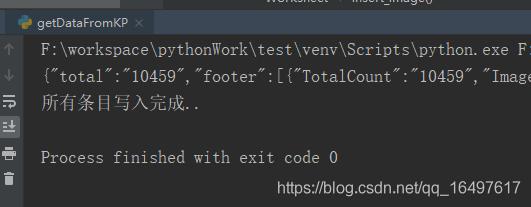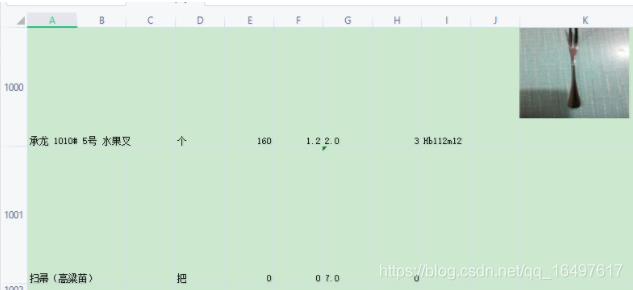应朋友需要,想将某客户的数据从某站里导出,先去某站搞个账号,建几条数据观察一番,心里有底后开搞。
1.Python环境搭建
之前电脑有安装过PyCharm Community 2019.1,具体安装过程就不写了,先跑个HelloWorld,输出正常后正式开整。
2.利用抓包工具或者Google浏览器调试模式拿到请求参数
Cookies参数如下:
cookies = { 'JSESSIONID': 'XXX', 'phone': 'XXX', 'password': 'XXX', 'isAuto': '0', ' loginAccess': 'XXX' }headers请求头信息构造:
headers = { 'Connection': 'keep-alive', 'sec-ch-ua': '"Google Chrome";v="89", "Chromium";v="89", ";Not A Brand";v="99"', 'Accept': 'application/json, text/javascript, */*; q=0.01', 'X-Requested-With': 'XMLHttpRequest', 'sec-ch-ua-mobile': '?0', 'User-Agent': 'Mozilla/5.0 (Windows NT 10.0; Win64; x64) AppleWebKit/537.36 (KHTML, like Gecko) Chrome/89.0.4389.90 Safari/537.36', 'Content-Type': 'application/json', 'Sec-Fetch-Site': 'same-origin', 'Sec-Fetch-Mode': 'cors', 'Sec-Fetch-Dest': 'empty', 'Referer': 'https://xxx.xxx.xxx', 'Accept-Language': 'zh-CN,zh;q=0.9',}请求路径:
params = ( ('method', 'getGoodsList'))请求参数组装:
data = '{ "pageSize":1000, "pageNumber":1, "searchText":"", "sortOrder":"asc", "isAdvancedSearch":false}'pageSize:每页数据数量
pageNumber:页码
searchText:搜索条件
sortOrder:排序3.利用Requests模拟请求并获取数据
response = requests.post( 'https://xxx.xxx.xxx', headers=headers, params=params, cookies=cookies, data=data ) print(response.text.encode('utf8')) res = json.loads(response.text)4.创建Excel表格
t = time.time() randStr = int(round(t * 1000)) tSheetName = "a_" + str(randStr) + ".xlsx" workbook = xlsxwriter.Workbook(tSheetName) worksheet = workbook.add_worksheet()5.表头及数据组装
cursor = 0 picurl = '' writeExcel(row=cursor) for obj in res["rows"]: cursor += 1 picurl = '' if obj['ImageKID']: picurl = 'https://xxx.xxx.xxx? imageKid='+obj['ImageKID'] writeExcel(row=cursor,Description=obj['Description'], Category=obj['Category'], Series=obj['Series'],BaseUnit=obj['BaseUnit'],Qty=obj['Qty'], CostPrice=obj['CostPrice'],SalePrice=obj['SalePrice'], RetailPrice=obj['RetailPrice'],Barcode=obj['Barcode'], Remark=obj['Remark'], ImageKID=picurl)6.将数据写入Excel表格中
def writeExcel(row=0, Description='', Category='', Series='', BaseUnit='', Qty='', CostPrice='', SalePrice='', RetailPrice='', Barcode='', Remark='',ImageKID=''): if row == 0: worksheet.write(row, 0, '名称') worksheet.write(row, 1, '货号') worksheet.write(row, 2, '规格') worksheet.write(row, 3, '单位') worksheet.write(row, 4, '库存') worksheet.write(row, 5, '成本') worksheet.write(row, 6, '批发价') worksheet.write(row, 7, '零售价') worksheet.write(row, 8, '条码') worksheet.write(row, 9, '备注') worksheet.write(row, 10, '图片') else: if ImageKID!='': image_data = io.BytesIO(urllib.urlopen(ImageKID).read()) worksheet.insert_image(row, 10, ImageKID, {'image_data': image_data}) worksheet.write(row, 0, Description) worksheet.write(row, 1, Category) worksheet.write(row, 2, Series) worksheet.write(row, 3, BaseUnit) worksheet.write(row, 4, Qty) worksheet.write(row, 5, CostPrice) worksheet.write(row, 6, SalePrice) worksheet.write(row, 7, RetailPrice) worksheet.write(row, 8, Barcode) worksheet.write(row, 9, Remark) worksheet.set_column(10, 10, 23) worksheet.set_row(row, 150)注意图片路径不存在的情况,否则会执行异常
write方法:
def write(self, row, col, *args): """ Write data to a worksheet cell by calling the appropriate write_*() method based on the type of data being passed. Args: row: The cell row (zero indexed). col: The cell column (zero indexed). *args: Args to pass to sub functions. Returns: 0: Success. -1: Row or column is out of worksheet bounds. other: Return value of called method. """ return self._write(row, col, *args)通过set_row方法设置表格行高
def set_row(self, row, height=None, cell_format=None, options=None): """ Set the width, and other properties of a row. Args: row: Row number (zero-indexed). height: Row height. (optional). cell_format: Row cell_format. (optional). options: Dict of options such as hidden, level and collapsed. Returns: 0: Success. -1: Row number is out of worksheet bounds. ...... """通过set_column方法设置图片列宽度:
def set_column(self, first_col, last_col, width=None, cell_format=None, options=None): """ Set the width, and other properties of a single column or a range of columns. Args: first_col: First column (zero-indexed). last_col: Last column (zero-indexed). Can be same as first_col. width: Column width. (optional). cell_format: Column cell_format. (optional). options: Dict of options such as hidden and level. Returns: 0: Success. -1: Column number is out of worksheet bounds. ...... """通过insert_image插入网络图片:
def insert_image(self, row, col, filename, options=None): """ Insert an image with its top-left corner in a worksheet cell. Args: row: The cell row (zero indexed). col: The cell column (zero indexed). filename: Path and filename for image in PNG, JPG or BMP format. options: Position, scale, url and data stream of the image. Returns: 0: Success. -1: Row or column is out of worksheet bounds. """ # Check insert (row, col) without storing. if self._check_dimensions(row, col, True, True): warn('Cannot insert image at (%d, %d).' % (row, col)) return -1 if options is None: options = {} x_offset = options.get('x_offset', 0) y_offset = options.get('y_offset', 0) x_scale = options.get('x_scale', 1) y_scale = options.get('y_scale', 1) url = options.get('url', None) tip = options.get('tip', None) anchor = options.get('object_position', 2) image_data = options.get('image_data', None) description = options.get('description', None) decorative = options.get('decorative', False) # For backward compatibility with older parameter name. anchor = options.get('positioning', anchor) if not image_data and not os.path.exists(filename): warn("Image file '%s' not found." % force_unicode(filename)) return -1 self.images.append([row, col, filename, x_offset, y_offset, x_scale, y_scale, url, tip, anchor, image_data, description, decorative]) return 0注意insert_image(row, colunmNum, ‘xx.png', {‘url': xxx})并不能插入网络图片,只是给本地图片一个url路径
7.关闭表格
workbook.close()8.附引入的包
# -*- coding: UTF-8 -*- # 批量获取XX数据 import io import json import requests import sys import xlsxwriter import time import urllib9.代码跑起来

在看下Excel表格中导出的信息

到此这篇关于Python中Cookies导出某站用户数据的方法的文章就介绍到这了,更多相关Python Cookies导出数据内容请搜索python博客以前的文章或继续浏览下面的相关文章希望大家以后多多支持python博客!
- << 上一篇 下一篇 >>
Python中Cookies导出某站用户数据的方法
看: 3344次 时间:2021-07-24 分类 : python教程
- 相关文章
- 2021-12-20Python 实现图片色彩转换案例
- 2021-12-20python初学定义函数
- 2021-12-20图文详解Python如何导入自己编写的py文件
- 2021-12-20python二分法查找实例代码
- 2021-12-20Pyinstaller打包工具的使用以及避坑
- 2021-12-20Facebook开源一站式服务python时序利器Kats详解
- 2021-12-20pyCaret效率倍增开源低代码的python机器学习工具
- 2021-12-20python机器学习使数据更鲜活的可视化工具Pandas_Alive
- 2021-12-20python读写文件with open的介绍
- 2021-12-20Python生成任意波形并存为txt的实现
-
搜索
-
-
推荐资源
-
Powered By python教程网 鲁ICP备18013710号
python博客 - 小白学python最友好的网站!